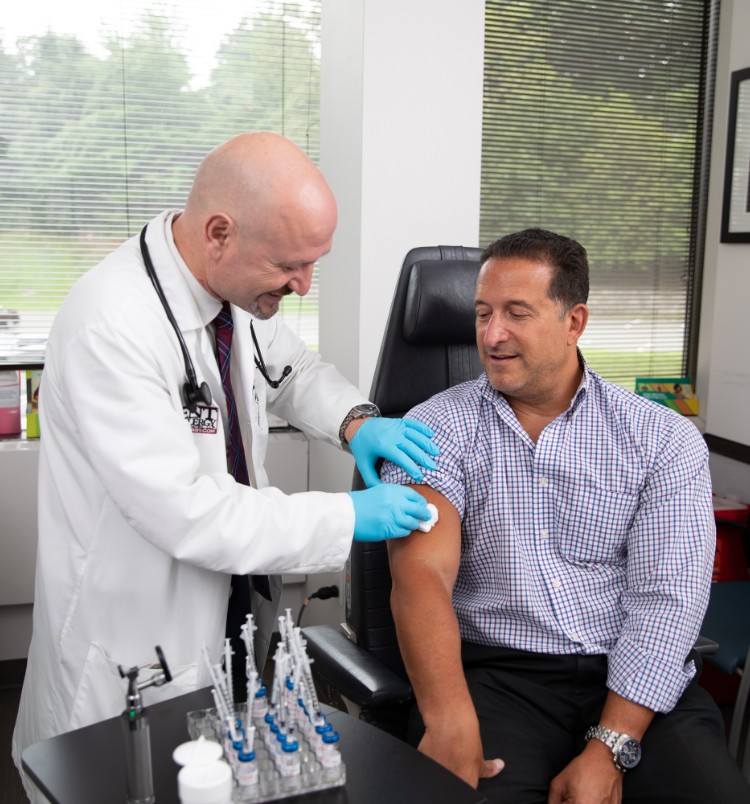
by Justin Skripak, M.D., F.A.A.P., F.A.C.A.A.I.
There are various types of food allergies which may benefit from evaluation by an allergist. People with food allergies have an allergic reaction when they come into contact with certain foods. This is because their body recognizes a harmless (food) substance as something harmful, and attacks it.
Types of food allergies
- Anaphylactic. This is when multiple systems in the body all react at the same time. This can be life-threatening, Typical symptoms include hives or other red itchy rash, itchy mouth, stuffy itchy nose, sneezing, itchy watery eyes, stomach pain, vomiting, diarrhea, swelling, hoarseness, throat tightness, coughing, wheezing, shortness of breath, light headedness, passing out. This requires emergency medical treatment.
- Pollen-related allergy. Many people who are allergic to pollens develop reactions to foods. The reactions typically occur to raw fruits, vegetables and nuts. This is called “oral allergy syndrome”. This normally resolves without treatment.
- Eosinophilic (“ee-uh-sin-uh-fil-ic”) esophagitis (EoE). Typical symptoms for this problem include difficulty swallowing, food sticking in throat and heartburn, stomach pain, vomiting. Food allergies are often, but not always the cause. This problem must be diagnosed by an endoscopy, performed by a gastroenterologist.
- Eczema. This is a chronic, itchy, red rash. Not all cases are allergic, but some are. Particularly in infants, foods may be an important trigger.
- Late-reacting meat allergy. Some people may develop allergies to various meats after being bitten by a specific type of tick. This allergy can be hard to identify because the symptoms often do not develop until several hours after eating the meat.
- Food protein induced enterocolitis. Typical symptoms are repeated vomiting and sometimes diarrhea. The vomiting can be very frequent, potentially leading to severe dehydration and low blood pressure. This typically occurs in infants and young children. The most common triggers are milk and soy, and grains such as oat and rice.
- Infant gastrointestinal problems. Sometimes foods can cause frequent spitting up or vomiting, abdominal pain and colic, diarrhea, blood or mucous in stools, poor feeding and poor growth.
Not all symptoms caused by foods are allergies. Some people who react to foods are not allergic, but rather, intolerant. An allergist can help to determine if you are allergic, what type of allergy you have, and how best to manage the problem.
There are two standardized, well-studied types of tests for food allergies.
- Allergy skin tests are done in the office by applying different food allergen liquids to the skin. Results are available in 15 minutes.
- Certain blood tests can provide similar information.
Treatment
Currently, there are no treatments to help food allergies to go away. Once the type of food allergy and the specific triggers are identified, a strategy can be discussed about avoiding the food(s). In some cases, emergency medicines including oral antihistamines and self-injected epinephrine devices must be kept immediately available.
There are many clinical trials for food allergy treatments ongoing in the U.S. and other countries. An allergist can keep you up to date on the progress of these studies, and prescribe these treatments once they become available.

Dedicated to Providing Convenient and Exceptional Care

Less Sick Days, More Living

